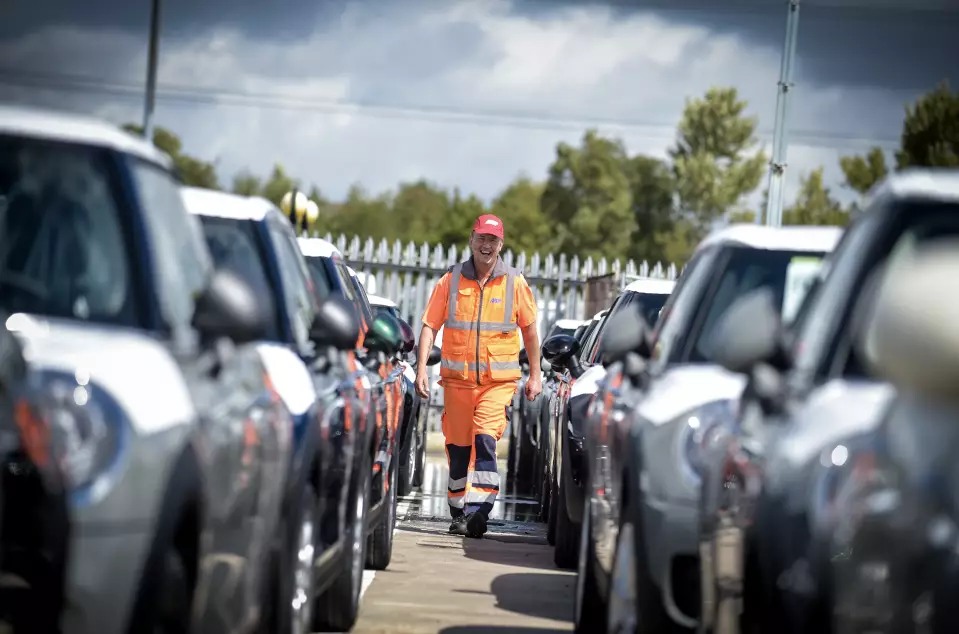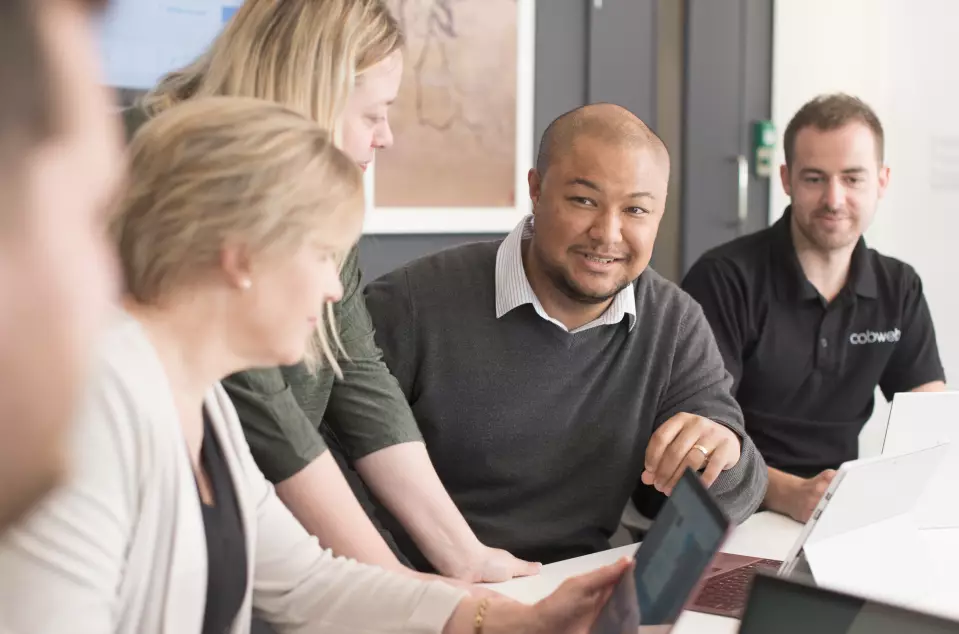








Skills

Participants felt that we must shape the Solent Freeport as an integral part of our wider economic future. It should not just aim to attract larger businesses (what one participant called “the usual suspects”) but must also be shaped with SMEs and micro-businesses in mind. Nor should its planning neglect the need to strike a balance between building on established regional strengths, whilst also looking for new opportunities in growing sectors, such as life sciences, green or digital.
The greatest fear many have is that the Solent Freeport will not make a positive contribution to the regional economy, but will instead simply provide competitive advantage for incoming businesses within a supportive “bubble”, without realising tangible benefits for established local enterprises outside tax and custom sites. Our participants felt strongly that all parties need to ensure that planning for the Solent Freeport sites is consistent with existing plans and strategies for growth and inward investment, and that businesses in these sites become an integral part of our regional economy.
Whilst most wanted the Solent Freeport to focus on supporting and encouraging local businesses, participants also recognised the need to bring business from outside the region into the Solent Freeport. Where the latter happens, participants want to see those businesses working with local suppliers - “we don’t want businesses whose supply chains are outside our region”. This was more than a simple desire to see a ‘trickle down’ of benefits, it reflects a wish to see positive relationships between the businesses in the Solent Freeport sites and the wider local economy.

Planning & Infrastructure
Economic


Some were fearful we might take a narrow approach to skills, just identifying what the Solent Freeport needs. To benefit the regional economy, planning for the Solent Freeport must be part of an inclusive, region-wide conversation about how we can close the region’s skills gaps, enabling training providers to develop their offer to give local people the skills they need.
We must also address the loss of skills we see as graduates and other skilled individuals move away from the region to work elsewhere. That is not, of course, an issue solely for the Solent Freeport, but it maybe the planning for that can help focus minds on the wider issue. One suggestion was that this includes a better focus on career pathways for those trained here.
Looking beyond the workplace, we noted that whilst talking about how to develop and retain skilled people participants often asked how the Central South can develop as an area where those workers want to settle and spend their lives. High housing costs were seen as a barrier (unsurprising, this is an issue routinely raised in much of SPC’s work). Interestingly, businesses also considered the region’s social and cultural offer was less enticing compared to other places.
We should of course have a clear focus on priority sectors the Solent Freeport is targeting and develop training programmes to meet relevant skills needs, but that must not be done in isolation. We must develop, as one participant said, “training to help the whole regional economy”.
The Local Skills Improvement Plan is widely seen as an opportunity to do that, and must be developed in close collaboration with the Solent Freeport – but “[without] making them a special case”. This is crucial if we are to counter the perception that we are a low skill region, a view which harms inward investment. An integrated approach will also address concerns that as freeport-based businesses recruit skilled staff they simply suck skilled people out of existing businesses, leaving a deficit in the wider economy.

Skills


Communications

The Solent Freeport will only work for the region if we take a coherent approach to overcoming barriers to business growth and relocation: improving digital, communication and transport infrastructure or addressing the region’s lack of good affordable housing, for example. Many cited the importance of a strategic approach to investing retained Business Rates: “The chance [to retain Business Rates] is exciting, but we need to know that money will be spent in a co-ordinated way to benefit the economy”.
Businesses' greatest fear was that change would be too slow, mired in complex planning and other regulatory requirements: as one participant put it “[we need] the flexibility to do deals and bring in businesses without bureaucracy and delay”.
To many the Solent Freeport is simply a mix of tax or customs incentives, which, one participant suggested, are all too often viewed as “loopholes”. There is no public conversation about its wider potential, no “narrative about what it might do for us”. A better understanding of the benefits of retained business rates and how they benefit the wider area may be one positive means of demonstrating to local business how the Solent Freeport can benefit the Central South.

Planning & Infrastructure


In the view of many participants there are big gaps in business and public understanding of what the Solent Freeport is. Those gaps are fuelling scepticism, even mistrust, and it is important they are closed quickly. Their existence can create a view that the initiative is separate from our mainstream economic planning and ambitions.








The greatest fear many have is that the Solent Freeport will not make a positive contribution to the regional economy, but will instead simply provide competitive advantage for incoming businesses within a supportive “bubble”, without realising tangible benefits for established local enterprises outside tax and custom sites. Our participants felt strongly that all parties need to ensure that planning for the Solent Freeport sites is consistent with existing plans and strategies for growth and inward investment, and that businesses in these sites become an integral part of our regional economy.
Whilst most wanted the Solent Freeport to focus on supporting and encouraging local businesses, participants also recognised the need to bring business from outside the region into the Solent Freeport. Where the latter happens, participants want to see those businesses working with local suppliers - “we don’t want businesses whose supply chains are outside our region”. This was more than a simple desire to see a ‘trickle down’ of benefits, it reflects a wish to see positive relationships between the businesses in the Solent Freeport sites and the wider local economy.
Participants felt that we must shape the Solent Freeport as an integral part of our wider economic future. It should not just aim to attract larger businesses (what one participant called “the usual suspects”) but must also be shaped with SMEs and micro-businesses in mind. Nor should its planning neglect the need to strike a balance between building on established regional strengths, whilst also looking for new opportunities in growing sectors, such as life sciences, green or digital.
We should of course have a clear focus on priority sectors the Solent Freeport is targeting and develop training programmes to meet relevant skills needs, but that must not be done in isolation. We must develop, as one participant said, “training to help the whole regional economy”.
The Local Skills Improvement Plan is widely seen as an opportunity to do that, and must be developed in close collaboration with the Solent Freeport – but “[without] making them a special case”. This is crucial if we are to counter the perception that we are a low skill region, a view which harms inward investment. An integrated approach will also address concerns that as freeport-based businesses recruit skilled staff they simply suck skilled people out of existing businesses, leaving a deficit in the wider economy.
We must also address the loss of skills we see as graduates and other skilled individuals move away from the region to work elsewhere. That is not, of course, an issue solely for the Solent Freeport, but it maybe the planning for that can help focus minds on the wider issue. One suggestion was that this includes a better focus on career pathways for those trained here.
Looking beyond the workplace, we noted that whilst talking about how to develop and retain skilled people participants often asked how the Central South can develop as an area where those workers want to settle and spend their lives. High housing costs were seen as a barrier (unsurprising, this is an issue routinely raised in much of SPC’s work). Interestingly, businesses also considered the region’s social and cultural offer was less enticing compared to other places.
Some were fearful we might take a narrow approach to skills, just identifying what the Solent Freeport needs. To benefit the regional economy, planning for the Solent Freeport must be part of an inclusive, region-wide conversation about how we can close the region’s skills gaps, enabling training providers to develop their offer to give local people the skills they need.
Businesses' greatest fear was that change would be too slow, mired in complex planning and other regulatory requirements: as one participant put it “[we need] the flexibility to do deals and bring in businesses without bureaucracy and delay”.
The Solent Freeport will only work for the region if we take a coherent approach to overcoming barriers to business growth and relocation: improving digital, communication and transport infrastructure or addressing the region’s lack of good affordable housing, for example. Many cited the importance of a strategic approach to investing retained Business Rates: “The chance [to retain Business Rates] is exciting, but we need to know that money will be spent in a co-ordinated way to benefit the economy”.
To many the Solent Freeport is simply a mix of tax or customs incentives, which, one participant suggested, are all too often viewed as “loopholes”. There is no public conversation about its wider potential, no “narrative about what it might do for us”. A better understanding of the benefits of retained business rates and how they benefit the wider area may be one positive means of demonstrating to local business how the Solent Freeport can benefit the Central South.
In the view of many participants there are big gaps in business and public understanding of what the Solent Freeport is. Those gaps are fuelling scepticism, even mistrust, and it is important they are closed quickly. Their existence can create a view that the initiative is separate from our mainstream economic planning and ambitions.